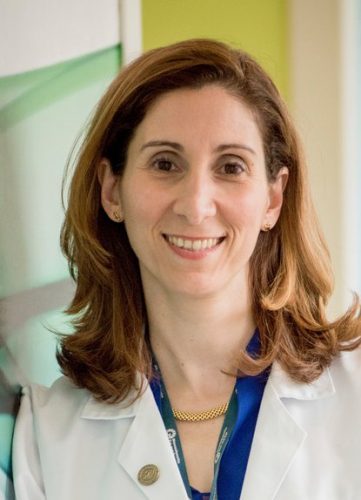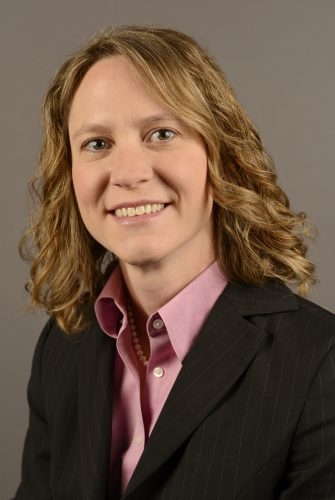Whether you’re scheduling a routine eye exam or having problems with your vision, choosing an eye doctor is an important decision. Sheila Borboli-Gerogiannis, MD, and Amy Watts, OD, from Mass. Eye and Ear explain how to choose between an optometrist and ophthalmologist.
What’s the difference?
An optometrist has a doctorate degree from an optometry school and can perform eye exams, write prescriptions for glasses or contact lenses, and evaluate and treat some eye diseases. They may also have expertise in fitting specialty contact lenses for eye conditions such as keratoconus.
An ophthalmologist is a medical or osteopathic doctor who has completed a three-year ophthalmology residency training program. In addition to performing routine eye exams, an ophthalmologist has been trained in both the medical and surgical treatment of eye diseases. Some ophthalmologists complete additional training to become subspecialists in areas like retina, cornea, or glaucoma.
Who should you see?
If your eyes are healthy and you simply need an exam for glasses, you can schedule an appointment with either an ophthalmologist or an optometrist, explained Dr. Watts. But if you need contact lenses, you’ll need to schedule an appointment with an optometrist. She recommends checking your health insurance coverage to see which provider is within your network and how often you can be seen. For example, most insurance companies only cover a routine eye exam every one to two years in otherwise healthy individuals.
If you have a medical eye problem, such as age-related macular degeneration or glaucoma, it may be recommended to seek care from an ophthalmologist. “In many cases, eye diseases are first diagnosed by your optometrist, who may then refer you to an ophthalmologist who specializes in your condition,” said Dr. Borboli-Gerogiannis.
Would you ever need to see both?
In some cases, an ophthalmologist and an optometrist may both provide care to a patient. For instance, “an ophthalmologist may refer a patient with a difficult or complicated refraction to an optometrist who can provide a careful measurement for glasses” explained Dr. Borboli-Gerogiannis.
On the other hand, “optometrists refer to ophthalmologists when patients are in need of eye surgery, like cataract or retinal surgery. Patients are also referred to ophthalmologists when they have complicated ophthalmic conditions such as severe glaucoma, macular degeneration, or other diseases, or if they develop complications from contact lens use, such as a severe eye infection.”
What if you’re considering laser vision correction?
Both optometrists and ophthalmologists can provide information and referrals for laser vision correction procedures like LASIK, PRK, or SMILE. After a complete eye exam, the patient may be referred to a refractive surgeon for further evaluation.
Where do opticians fit in?
Opticians work in optical shops and don’t perform routine eye exams. “They have unique expertise apart from optometrists and ophthalmologists. They are knowledgeable about different lens designs, prisms, and tints, and can help patients choose the best type of glasses based on their lifestyle, hobbies, work needs, visual acuity, and cost. But most importantly, opticians make sure that the glasses are made according to the prescription and that they fit correctly,” said Dr. Watts.
To schedule an eye care appointment with an optometrist or comprehensive ophthalmologist, call 617-573-3202 or request an appointment online.
About Our Experts
 Dr. Sheila Borboli-Gerogiannis is a comprehensive ophthalmologist at Mass. Eye and Ear. With expertise in cataract surgery and corneal disease, she sees patients with a variety of eye conditions.
Dr. Sheila Borboli-Gerogiannis is a comprehensive ophthalmologist at Mass. Eye and Ear. With expertise in cataract surgery and corneal disease, she sees patients with a variety of eye conditions.
 Dr. Amy Watts is an optometrist and Director of both the Optometry and Contact Lens Service and Vision Rehabilitation Service at Mass. Eye and Ear. She provides routine and specialized contact lens fittings.
Dr. Amy Watts is an optometrist and Director of both the Optometry and Contact Lens Service and Vision Rehabilitation Service at Mass. Eye and Ear. She provides routine and specialized contact lens fittings.
Having serious vision loss I have been examined by a number of opthomologist and an optometrist. The general opthomologist have not understood vision which occurs in one’s brain. I had been allowed to drive, told to just be careful when falling up/down curbs/stairs, walking into lighting poles, etc. as I corrected to 20/30 & 20/40. However my vision loss was in large and small ‘chunks’ of my visual field giving my brain a great challenge. When MEEI had a comprehensive low vision clinic I finally worked with professionals who understood the needs of one with low vision. It is not simply a 20/20 or less problem but a complicated unique set for each one with severe vision loss. Some will need various assistive devices to manage their life including return to work. Others may need lighting, education and practice on how to read, learn how to move safely and timely in their world, etc. But, it is Optomotrist who understand vision; opthomologist understand the function of the mechanical componets, challenges and diseases affecting each. Thankfully the MEEI Low Vision Clinic gave me what I needed to live comfortably and successfully in this world with a greatly reduced visual field. I did/do not have adequate vision for driving and their support for giving up my license was most helpful. This clinic has been discontinued but there is help elsewhere in Boston perhaps.
Thank you for the helpful information. I am a long term patient of Dr. Borboli-Gerogiannis and MA Eye and Ear.
I cannot say enough how pleased I am with the care that she provides, and my experiences with MA Eye and Ear. I am thankful to have Dr. Borboli-Gerogiannis as part of my care team and for the outstanding organization that she is affiliated with.
Thank you again!
An appointment with an eye doctor could indeed be extremely important for me soon. If I can get that done, I can find out what might be causing the vision loss that I’ve experienced for quite some time now. I’ll go and ask an eye doctor for some help with this in advance so nothing gets out of hand.